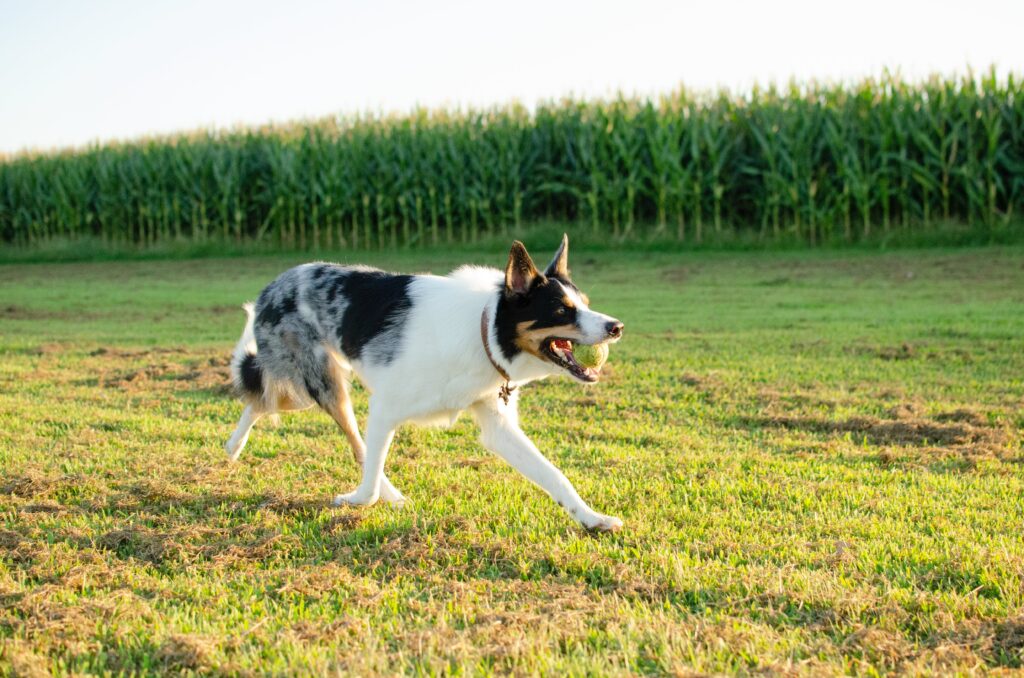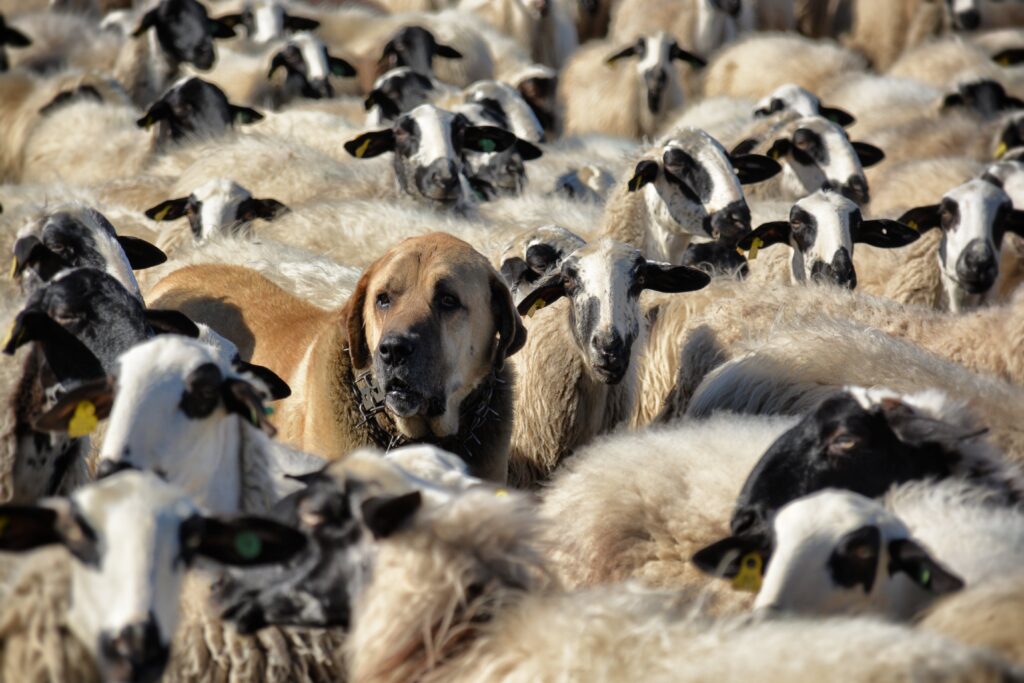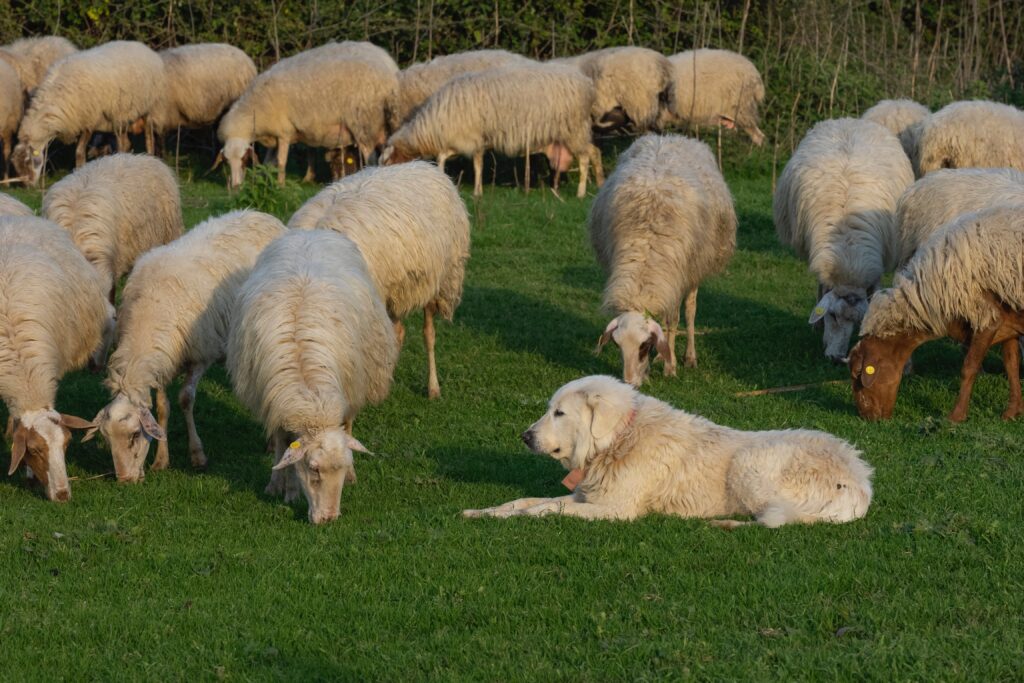Where most people are on the lookout for a spouse to spend the rest of their lives with, a farm dog is the true love of any farmer’s life. Farm dogs are an asset to any farm. They help to protect and handle the livestock. Farm dogs have two main responsibilities, the first being to herd livestock.
A trained dog helps the farmer with livestock handling and does the job of several people. The other main responsibility of the farm dog is guarding. Dogs are excellent guards and protectors of the homestead against human criminals and varmints, but some breeds live with the sheep herd in the veld and protect them from predators. Even the smallest dog breeds play a protective role by acting as a most efficient alarm system.
The right breed
As in any relationship, it is important for the farmer to have a close relationship with his dog. Therefore, the right breed of dog for the purpose is important. Although everyone has his own preferences, some dog breeds are better suited as farm dogs. When you choose your breed of farm dog, it is best to first identify your specific need on the farm. Different dogs are used for different purposes. Jack Russels are especially effective for homestead protection, rodent control and even snake control. If you are looking for a dog that is efficient in warning against trespassers, a Maltese or Dachshund is the way to go. There is a fit for every need! In some countries, farm dogs are even used as a source of heat during cold nights.
Key characteristics to look for when choosing your canine companion is energy and aggression. If a dog is aggressive as a puppy, it is a strong indication that it will not be afraid to confront predators.

Dogs respond well to training that includes positive reinforcement, such as toys and treats.
A trained dog is a happy dog
Before a dog can be released to work on the farm, proper training is essential. This is for the safety of the farm workers and the livestock. An untrained animal may be out of control or destructive. Although aggression is necessary to a certain degree for a farm dog, if the dog isn’t trained to channel that aggression, it can become dangerous. Before being exposed to the farm, a dog needs the basic training: sit, stay, come, stand, fetch.A puppy as young as eight weeks can start to learn these commands. Once these commands have been mastered, you can slowly start to introduce the dog to the farm.
In herd training, dogs will learn other commands as well, such as going clockwise or anti-clockwise, and gathering and moving the flock. In the beginning, keep the dog on a leash. The farm is a big adjustment with a lot of stimuli for the dog. It can be helpful to introduce the dog to the farm in a couple of short visits. In this way, the dog can slowly become accustomed to the environment without being overwhelmed. It is also helpful to introduce the dog to different types of animals separately, with a fence between the livestock and the dog. If your dog is overstimulated, it won’t be able to listen to or obey commands. If the dog is stressed, as a result the other animals will be stressed as well. If the dog starts to feel overwhelmed it may start to bark and cause chaos among the animals.
The stress it places on the animals may even affect their productivity. Dog training should be divided into steps. It should be manageable and logical for the dog. Dogs respond to consistency, therefore you should keep making the same sounds and body movements. Repeat, repeat, repeat! The more you repeat something, the quicker the dog will learn. Reinforcement is important for the farm dog. It teaches him his boundaries. While it is important not to tolerate bad or aggressive behaviour, it is just as important to use positive reinforce- ment in the form of a reward to teach your dog what good behaviour is. Dogs want to repeat what gives them pleasure and avoid what givesthem pain or discomfort. Effective motivation and rewards can be toys, balls, praise or a treat. Lessen the number of toys or treats with each training session, so that eventually your praise alone will be enough to please the dog.
It is valuable to teach your dog a “bad sound”. On a farm, it can often happen that the dog is far from your reach. When potential danger comes or the dog is being naughty, a negative sound can stop the dog. The kind of sounds can be something like “aaarg” or “no”. Likewise, teach your dog a good sound of praise, such as “good dog”.

Farm dogs are trained to protect flocks (source: Pexels).
Protect your puppy
A farm comes with many challenges, one of them being the safety of the farm animals. The farm dog is no exception. One of the biggest threats to your farm dog are the local predators. It is important to know which predators are prominent in the area. Even though most farm dogs are trained to protect, it is better to have measures in place to deter threats. These measures can include light and noise devices.
Another important preventative measure to ensure your dog’s safety is to administer the necessary vaccinations. It is a good idea to consult your local veterinarian on which vaccines are advisable, as it can vary depending on where you live. Vaccinations should cover general diseases like rabies, but also more specific diseases that can be specific to a certain area.
A dog needs boundaries. To prevent a dog from straying or getting into an accident, proper fencing is required. Boundary training is also helpful in this aspect. Fencing is very important to protect the dog against accidental consumption of certain food or plants that are toxic to him. Livestock feed and dewormers can intoxicate the dog or cause upset stomachs. Food is fuel. Feeding your dog is one thing, but to make sure it gets the right nutrition is another. Choose high-quality food that is rich in protein and can sustain your farm dog. It is self-explanatory that a farm dog will cover big areas of land and stray far from home. A microchip or tracking collar can help you keep track of where your dog is. If a dog gets injured on the farm, it will be easy to locate. Herd training can be a daunting task. It can be beneficial to consult a specialist trainer before releasing your dog on its own on the farm. Do your best and let your furry friend do the rest.

Although farm dogs should be aggressive towards predators, they should get along well with the animals on the farm (source: Pexels)









